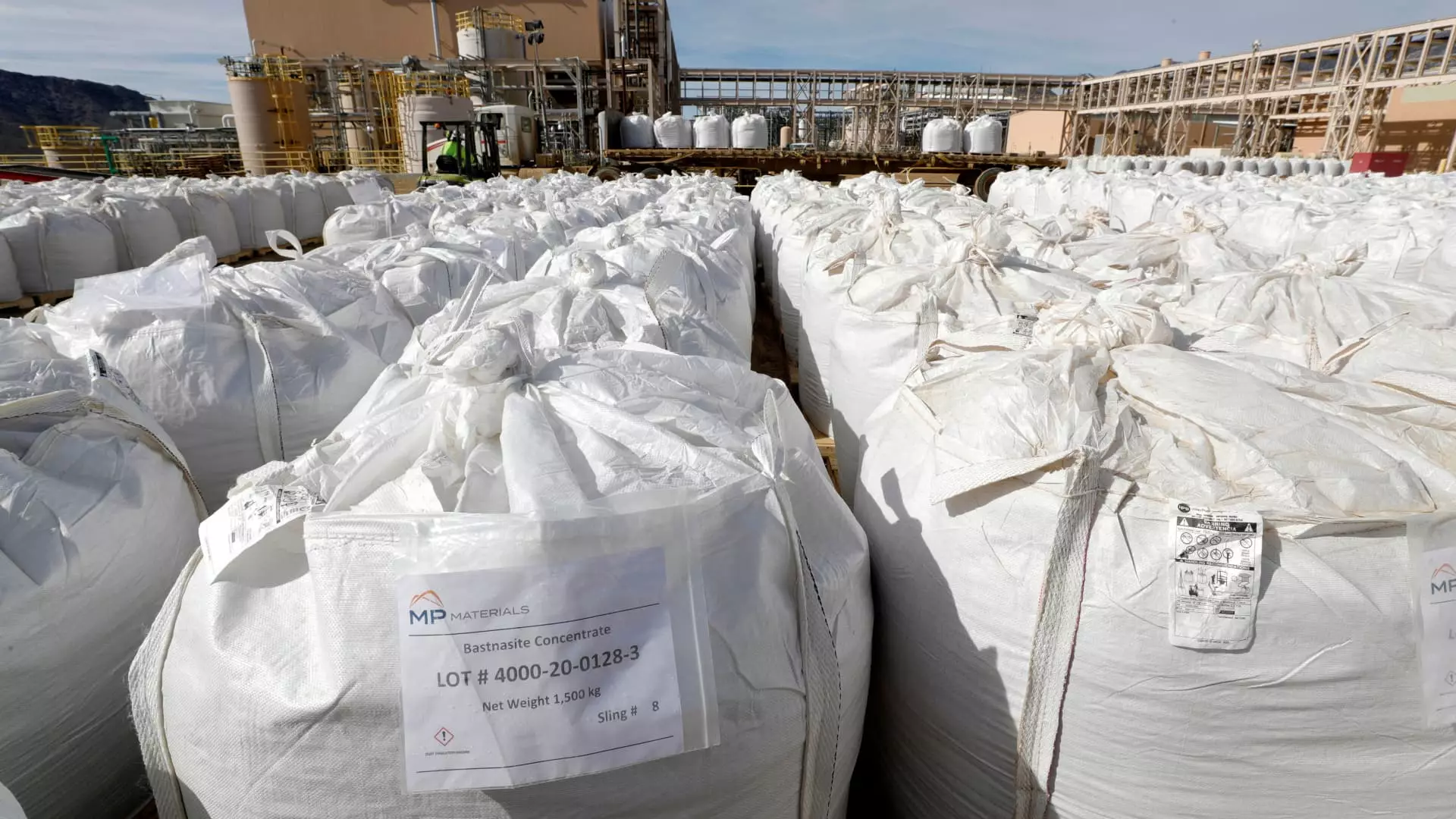The recent surge of MP Materials by over 47% highlights a fundamental shift in the global strategic landscape. This isn’t merely an isolated market blip; it underscores the escalating importance of rare earth elements in national security and technological dominance. When the U.S. Defense Department commits a hefty $400 million to buy preferred stock directly from a supplier, it signals a clear intent to assert control over critical supply chains. Such moves threaten to weaken the traditional power of foreign suppliers, particularly China, which historically dominates this space. The message is loud and clear: resource sovereignty becomes increasingly intertwined with military and economic strength. As CEO James Litinsky asserts, their control remains intact despite a significant government stake—yet this narrative of independence is increasingly challenged by geopolitical realities. This shift exemplifies the center-right view that fostering domestic industry and resource independence is paramount in an era of unpredictable international relations.
Corporate Resilience and Market Optimism: A Mixed Bag
Meanwhile, companies like Delta and McDonald’s demonstrate a different facet of market dynamics—resilience and adaptation amidst uncertainty. Delta Air Lines’ upward movement by 11% following optimistic outlook revisions reflect a belief that traditional sectors like travel and hospitality can withstand near-term shocks. These companies reveal the importance of strategic foresight and operational efficiency in maintaining investor confidence. McDonald’s gaining 2% after Goldman Sachs upgraded its outlook suggests that even in a tight economy, brands with strong franchise models and cost leadership have staying power. This demonstrates a core belief in the center-right ideology: that market competitiveness, fueled by innovation and fiscal discipline, trumps interference and overregulation.
Global Tensions and Their Market Echoes
Not all news is positive, especially when it comes to international relations. The decline in Brazilian stocks and Embraer reflects the fragility of global trade, especially when political decisions like tariffs come into play. President Trump’s announcement of tariffs on Brazilian imports, and Brazil’s retaliatory threats, reveal how policies rooted in protectionism threaten to destabilize markets and disrupt longstanding alliances. The negative impact on Embraer, a key player in aerospace, illustrates how geopolitical tensions ripple into sectors critical for technological advancement and economic growth. These developments reinforce a core principle of pragmatic liberalism—dependence on free trade and peaceful diplomatic relations as foundations for prosperity.
Speculative Frenzies and their Risks
Hertz and WK Kellogg’s recent performances embody the speculative spirit thriving within the market. Hertz’s 12% jump, driven by meme-stock momentum, exemplifies how investor enthusiasm can temporarily overshadow fundamentals. Yet this enthusiasm carries inherent risks, especially when growth is propelled more by social media hype than solid business metrics. Equally, Kellogg’s leap of 30% following a takeover offer demonstrates how strategic M&A activity can shift market perceptions, but also raises questions about valuation discipline. The center-right approach emphasizes that enthusiasm should be tempered by prudence; markets are cyclical, and bubbles often burst when optimism exceeds reality.
Technological Innovation and Its Uncertain Pace
On the tech front, Mobileye’s decline post-secondary offering underscores the delicate balance between innovation and investor confidence. As they price new shares, investor skepticism arises—highlighting the importance of sustainable growth over short-term capital raises. Conversely, AMD’s 3% increase on an upgraded outlook for its AI chip signifies promising innovation that could reshape the industry. However, reliance on artificial intelligence and cutting-edge technology also introduces volatility and geopolitical concerns about technological dominance. Advocates of center-right liberalism would argue that fostering competitive innovation should involve supportive policies, but without unnecessary state interference that could stifle progress.
The Manufacturing Sector’s Forward Momentum
Trex’s recent upgrade and demand for decking materials point to an optimistic outlook for the construction and manufacturing sectors. Their resilience, despite earlier declines, hints at underlying economic strength and infrastructural growth. For policymakers and investors aligned with pragmatic conservatism, supporting industries that demonstrate solid demand and strategic growth paths is crucial. This focus emphasizes that long-term economic health depends on nurturing core industries, encouraging innovation, and avoiding over-leveraging government intervention.
Market Sentiment and Corporate Outlooks: A Tale of Disparity
Finally, the contrasting fortunes of Helen of Troy serve as a reminder that not all sectors possess the resilience of resource giants or technology innovators. The disappointment in earnings guidance undermines investor trust, especially when forecasts fall short of expectations. This sector volatility demonstrates the importance of fiscal discipline and realistic projections. From a center-right perspective, responsible corporate governance and transparent management are more critical than chasing fleeting gains. Market vitality depends on companies that prioritize sustainable growth over short-term hype.
These midday movements, whether positive or negative, reflect wider themes of geopolitical strategy, technological competition, and market resilience. They reveal a world where control over resources, innovation, and strategic trade policies shape the future. The market’s oscillations serve as a barometer—raising questions about who truly holds power and how nations, corporations, and investors navigate the turbulent waters of modern global economics.

